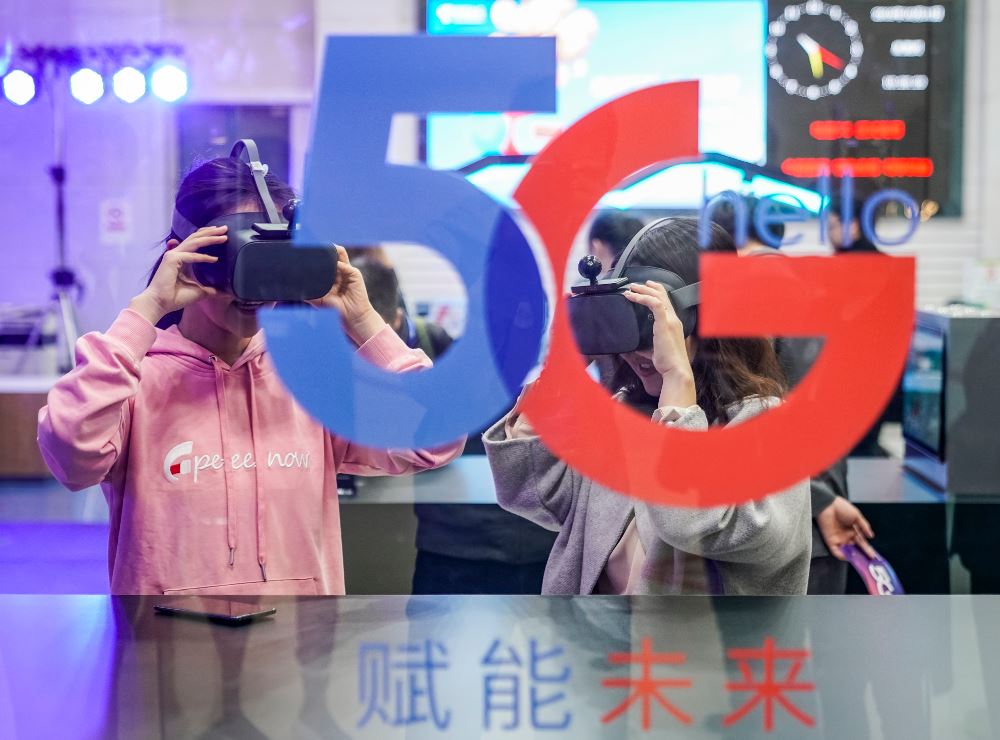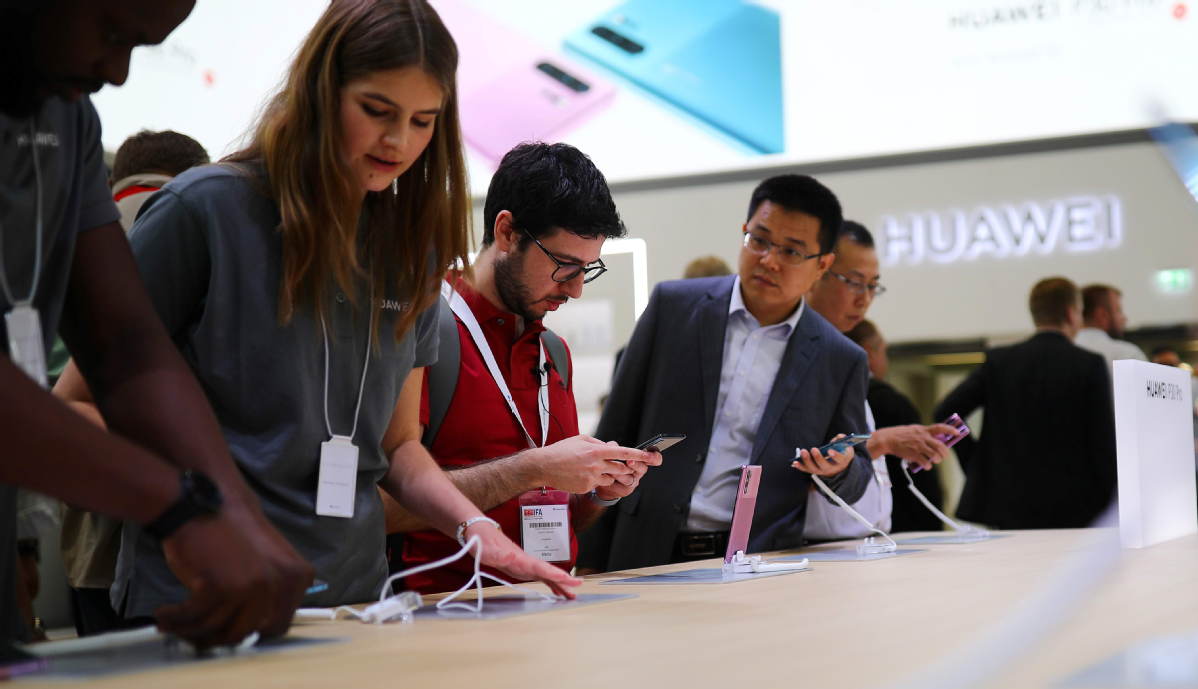Leap of faith paying dividends for Huawei


Overseas companies looking to establish long-standing, fruitful business partnerships with Chinese telecom gear maker
Olaf Swantee, CEO of Sunrise, the second-largest telecom carrier in Switzerland, was surprised when news surfaced in May that Chinese telecom gear maker Huawei Technologies Co was put on a US trade blacklist due to charges of security risks.
"I have worked with Huawei since 2010 and I have always found it a great partner, highly secure and reliable, and it has never interfered in data," said Swantee. The senior executive was the CEO of UK telecom carrier EE till 2016 where he worked with Huawei extensively.
When the US restrictions took effect, Sunrise was in the midst of rolling out its 5G network with Huawei equipment. To understand the full impact of the move and gain insights from his Chinese partner, Swantee flew to Shenzhen and met Ren Zhengfei, founder of Huawei, and other senior executives to discuss contingency plans. "It was a meeting that was significant in many ways."
Five months later, the association between the two partners is on firmer footing. Sunrise has rolled out 5G services in 262 Swiss towns and cities, and over 50 percent of telecom equipment in its 5G core and radio networks is provided by Huawei. In addition, the two sides have set up a 5G joint innovation center in Europe.
"We see it (the center) as a single spark that can start a 'prairie' fire. Whatever it incubates would serve as pilots for global carriers," said Ding Yun, president of Huawei's telecom carrier business.
But for top managers like Swantee, Huawei is not just an equipment provider. "I was truly impressed by the management and leadership of Huawei, which is a dynamic, strong and highly innovative company. We are proud to team up with them," Swantee said.
Swantee's shift from surprise to worry to deeper trust of Huawei seems to reflect the broader trend in how foreign telecom operators and governments are responding to the US government's efforts to dissuade its allies from using Huawei in their network plans.
Last month, Germany said it would not single out any telecom player, including Huawei, in its 5G build-out. German government spokesman Steffen Seibert said at a news conference in Berlin that "we are not taking a preemptive decision to ban any actor, or any company".
Seibert's comments came after the European Commission said in a joint 5G risk assessment report that EU nations will be required to share data on 5G cybersecurity risks and produce measures to tackle them by the end of the year. But the report shunned Washington's calls to restrict Huawei across the bloc.
"The fundamental challenge for Huawei and other Chinese tech giants is how to gain trust in the global tech arena. Some foreign countries entertain doubt and distrust toward Chinese technologies simply because they are from China," said Bai Ming, a senior research fellow with the Chinese Academy of International Trade and Economic Cooperation.
"Mixing politics with normal business cooperation sets a bad precedent, especially as the world is at the tipping point of large-scale 5G network construction," Bai added.

According to the global telecom industry association GSMA, there will be 60 5G commercial networks by the end of this year, up from the current 40 commercial 5G networks in more than 20 countries and regions. Next year, more aggressive steps will be seen around the world to accelerate the rollout of new-generation wireless technology.
Europe, which is seen by Ren Zhengfei, founder of Huawei, as the second home of the company, will also see more 5G commercial network running in 2020. As its largest overseas market, almost every country in Europe has a telecom operator that purchases Huawei's products. At the same time, Europe is where most of the US government's allies are located and Washington spares no effort to persuade them from banning Huawei on 5G plans.
Such a complex situation focuses all eyes on Europe to see how it will act on 5G amid uncertainties. But executives like Swantee are reluctant to be forced into such a sophisticated political game.
Swantee, who underlined that no businesses want to step into political waters, said: "I worry about politics intervening in good partnerships ... It is difficult to assess political equations."
The executive said though Huawei does have a great price performance, the company chose to team up with them due to "Huawei's detailed focus on success and making networks better and better".
Citing an example, Swantee says that Huawei's top-level executives including Hu Houkun, its rotating chairman, who deal with hundreds of other telecom operators across the world, are quick to step in and address quickly any problems that Sunrise encounters during its 5G rollout. "They are dedicated and responsive in making sure that we have a defect-free network."
It is these bonds of friendship and trust that have helped Huawei to surmount the worst of the US restrictions. "The Chinese tech major's close partnership with foreign companies won't be derailed by trade restrictions," said Wang Yanhui, secretary-general of the Mobile China Alliance.
"Their consistent efforts to hone technological edges and offer best services can speak louder than political accusations," Wang said.
And true to its words, Huawei has shrugged off the impact of US restrictions with steady growth in core businesses and a slew of impressive product launches in the overseas market.
Latest data showed that it has signed more than 60 commercial contracts for 5G with leading carriers globally, an increase from 40 contracts at the time of the US restrictions in May.
Its domestic peer ZTE Corp has also inked deals with about 60 overseas telecom operators on cooperation, signifying that Chinese tech companies are securing more votes of confidence in the global arena.
Specifically, among Huawei's total 5G commercial contracts, nearly half of them are from Europe, with 32 in total, and 11 from the Middle East, 10 from Asia-Pacific, seven from the Americas and one from Africa.
Kirsi Valtari, vice-president of business development at Elisa, a Finish telecom operator, said her company has already launched 5G services in several cities using Huawei's telecom equipment in part of its 5G radio network. "We take security very seriously and we check every product before we use them," Valtari said.
The constantly increasing 5G contracts mirror what Ding, president of Huawei's carrier business group, said. "We have seen the fastest growth in areas where we were hit the hardest."




































